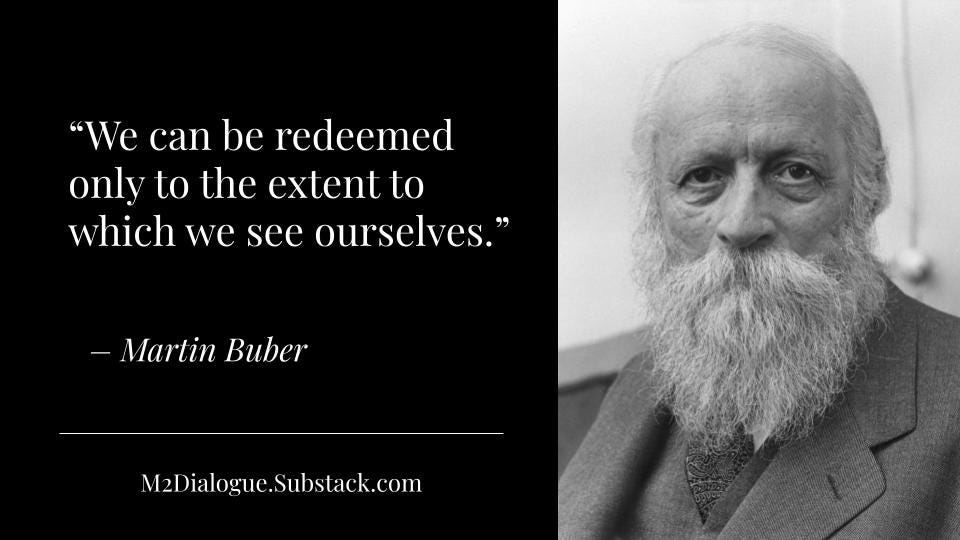Frequently Unasked Question (FUQ) #10
If we can be redeemed only to the extent that we see ourselves, why do we keep looking away?
In my "Introduction to Cute Monsters in the Vortex", I wrote about a perspective that I described as objective but not neutral. I argued that this perspective enables people to recognize ‘cute monsters’, such as authoritarian leaders, without denying either their monstrosity or their cuteness.
However, the ability to recognize cute monsters is only an example that illustrates the value of this perspective. In "Redemption Begins with Sight", Eugene Terekhin shares an idea and a story that beautifully expand on my initial illustration. The idea is that seeing begins with self-seeing, and we can be redeemed only to the extent that we see ourselves. The idea inspired the FUQ for this post: If we can be redeemed only to the extent that we see ourselves, why do we keep looking away? There’s a long way and a short way to answer this question.
The Long Answer
The long answer is an evergreen theme for my work on this blog. But I can channel Hillel the Elder by stating the answer briefly enough for the reader to consume while standing on one leg. We keep looking away because:
We fear what we might find if we dare to look.
Psychic defense mechanisms predetermine our responses.
We live in the age of distraction from distraction by distraction.
We are trapped in perverse incentives that compel us to look away.
We haven’t developed enough self-compassion, and we fear that self-awareness will fuel self-criticism and despair.
Looking away is a misguided form of self-preservation.
The Short Answer
The short answer is that we keep looking away because we don’t have enough role models who exemplify the power of what what Martin Buber called the “I-Thou” perspective. As Terekhin writes:
Martin Buber talks about the power of the “I-Thou” perspective, which cannot be taught. It can only be shown. When you encounter even one person who sees themselves in all things, it shakes you to the core, and you begin to see it too. We need at least one witness of the “I-Thou” — someone who sees things differently.
For example:
Maria Veniaminovna Yudina, a renowned Russian pianist and a believer, was such a witness when she received from Stalin an insane amount of money, 20,000 rubles, as a reward for her performance of Mozart’s Piano Concerto No. 23. She wrote him a letter boldly calling him a sinner. Stalin had heard her performance on the radio and was so moved that he requested a recording. No recording existed, so a special late-night session was arranged, and the next morning, a single copy of the recording was sent to Stalin.
In gratitude, Stalin sent Yudina 20,000 rubles. She wrote him a letter that read:
“Thank you, Joseph Vissarionovich, for your generosity. I will donate all of this money to my church, where I will pray day and night for your sins to be forgiven.”
Surprisingly, Stalin did not arrest her—at a time when dissenters were being systematically eliminated. No one knows why. Perhaps he was too shocked to encounter someone who dared to call a spade a spade in the midst of the Gulag.
I don't want to cheapen the beauty of Yudina’s response to Stalin by describing it as non-neutrally objective, but the description is accurate. The response is objective in the sense that Yudina sees Stalin's sinfulness, and she also sees him as a person worthy of a prayer. The response is non-neutral in the sense that she dares to speak her mind. Terekhin is right: when we come across such responses, we are shaken to the core.


